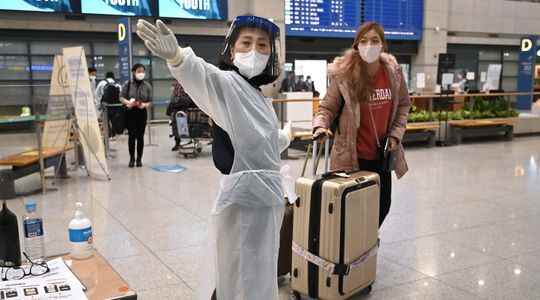The seventh wave of Covid-19 is bad timing for tourist destinations. While many European countries are facing a resurgence of the epidemic, they have to juggle between health restrictions and the reception of travelers that some are expecting in droves. In Europe, travel restrictions linked to Covid-19 have been practically all lifted according to the government site France Diplomatie.
Note that Spain, Germany, Switzerland or Belgium are open to travelers who have not been vaccinated and have not tested negative. The mask remains compulsory in public transport in Spain, Germany and Italy.
Second tourist destination in the world before the Covid-19 pandemic, Spain hopes to return this summer to the record levels of attendance of 2019, after two years of health restrictions. The whole of Spanish territory is subject to the rules of the “new normal”, which provide in particular: the wearing of a mask is compulsory for anyone over the age of 6 in health establishments, including pharmacies, residences for the elderly as well as inside all public transport and respect for barrier gestures.
In Portugal, many restrictions have also been lifted. The only difference with Spain: the obligation to wear a mask is maintained in places characterized by intensive use (public passenger transport, including air transport).
As in Spain, the health pass is no longer required to enter Italian territory since June 1, 2022. The Italian authorities therefore no longer require proof of vaccination, recovery or test. Wearing the FFP2 mask remains compulsory in certain places: transport (except air) and in health establishments, places of accommodation for the elderly, hospitals and health structures.
Yet a flagship tourist destination, the island of Malta remains strict on the restrictions: only people vaccinated, or presenting a negative test for Covid-19, are authorized to enter the territory. Apart from these cases, travelers will be placed in quarantine at their own expense in a hotel chosen by the government. Note that children under 12 are exempt from these obligations.
In Morocco, entry into the territory is subject to the obligation to present a valid vaccination pass. Travelers who are not vaccinated or do not have a complete vaccination schedule will have to present a negative result of a PCR test less than 72 hours before boarding the aircraft. The mask is compulsory throughout the territory.
In Algeria, travelers must submit to a similar health protocol. The only difference being that vaccinated tourists must show a Covid-19 vaccination passport not older than 9 months.
In Tunisia, vaccinated travelers are required to present their vaccination scheme certificate. The others must present a negative Covid-19 PCR test carried out less than 48 hours before the first boarding, or a negative antigen test carried out less than 24 hours before the first boarding (self-tests are not recognized). In both cases, you will have to agree to undergo random screening tests on arrival.
To travel to the United Kingdom, it is no longer necessary to justify a complete vaccination schedule or present the result of a negative test, nor to complete the “passenger locator form”. Regarding other health restrictions, they vary significantly depending on the place of stay or residence.
The United States also remains cautious. “As of November 8, 2021, travelers 18 years of age or older to the United States by air must present proof of full vaccination to be allowed to board, unless they are of American nationality, legal permanent residents or immigrants and a few other very limited exceptions”, recalls on its site the Consulate General of France in Washington.
Transits through the United States are also affected by this vaccination obligation. As of June 12, 2022, the presentation of a negative virological test for Covid-19 is no longer mandatory to travel to the United States.
